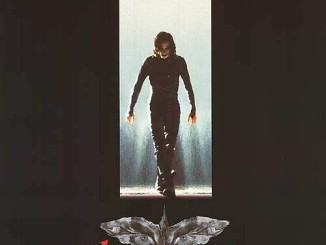 One of the seminal short story collections in science-fiction literature is Isaac Asimov’s I, Robot. The stories introduced the idea of the Three Laws of Robotics, hardwired into every robot’s computerized brain prohibiting them from harming humans. The stories were logic puzzles based on the Three Laws and helped move the genre away from its mad scientist pulp roots towards a genre that would examine the relationship between man and technology. Unfortunately, for as smart as the source material is, the new film adaptation of I, Robot is nothing more than a big hollow, noisy, empty spectacle.
One of the seminal short story collections in science-fiction literature is Isaac Asimov’s I, Robot. The stories introduced the idea of the Three Laws of Robotics, hardwired into every robot’s computerized brain prohibiting them from harming humans. The stories were logic puzzles based on the Three Laws and helped move the genre away from its mad scientist pulp roots towards a genre that would examine the relationship between man and technology. Unfortunately, for as smart as the source material is, the new film adaptation of I, Robot is nothing more than a big hollow, noisy, empty spectacle.
It is 2035 and thanks to the breakthroughs in robotic engineering, humanoid robots perform many of the more menial tasks in society. However, on the eve of the product roll out of a brand new model robot, Alfred Lanning (James Cromwell), the engineer who has been key to the technology’s advancement, seemingly commits suicide. Called to the scene is Detective Del Spooner (Will Smith), who has a distrust of robots and immediately suspects a modified robot found in Lanning’s office actually murdered him. One of Lanning’s colleagues, Dr. Susan Calvin (Bridget Moynahan as the only character carried over from Asimov’s stories) argues with Spooner that the Three Laws would prohibit such a thing, even though the robot, who calls himself Sunny has displayed a hitherto unseen in robots self-awareness.
Director Alex Proyas has done some solid and smart genre work in the past with the comic book adaptation The Crow and the noir-ish thriller Dark City, but here he’s hampered by a screenplay that starts off with aspirations of being a techno-thriller but which rapidly devolves into standard blockbuster fare. Smith’s Spooner goes through all the standard “rouge cop” story beats- he’s a sassy talking cop with a past trauma that still haunts him, his fellow officers think he crazy, after violating orders from his superior he gets kicked off the case and suspended from the force. And if things weren’t familiar enough, Smith also works in his trademark “Awww, hell no!” line which somehow shows up in each of his films. Spooner’s investigation proceeds exactly as how the script demands it to, where a coincidental remark will lead him to the next clue as opposed to any deductive reasoning. The film ploddingly builds to a loud noisy climax without any regard to pacing or logic with a revelation of a villain that Susan Calvin’s literary counterpart would have deduced an hour earlier in the film.
 Fans of Isaac Asimov’s classic short story collection, and I count myself in that number, have probably already figured out that this film will not be a faithful adaptation of the book. (For something more in the vein of what Asimov wrote, fans can track down writer Harlan Ellison’s screenplay adaptation written in 1978 and recently published in book form.) The film is fairly honest about its lack of fidelity to its source material with the end credit that reads almost apologetically “Suggested by Isaac Asimov’s book”. But outside of the fairly cynical idea of using the book’s name recognition and a few throw away references, there seems little need to have called this movie I, Robot. Other films have used Asimov’s ideas before without the need to trade on his name. Forbidden Planet contained a robot with a built in prohibition against harming humans while Blade Runner has touched upon the idea of what happens when robots become so highly developed that they develop true human characteristics and emotions. Unfortunately, both fans of action films and Asimov’s writing will feel disappointed by this movie.
Fans of Isaac Asimov’s classic short story collection, and I count myself in that number, have probably already figured out that this film will not be a faithful adaptation of the book. (For something more in the vein of what Asimov wrote, fans can track down writer Harlan Ellison’s screenplay adaptation written in 1978 and recently published in book form.) The film is fairly honest about its lack of fidelity to its source material with the end credit that reads almost apologetically “Suggested by Isaac Asimov’s book”. But outside of the fairly cynical idea of using the book’s name recognition and a few throw away references, there seems little need to have called this movie I, Robot. Other films have used Asimov’s ideas before without the need to trade on his name. Forbidden Planet contained a robot with a built in prohibition against harming humans while Blade Runner has touched upon the idea of what happens when robots become so highly developed that they develop true human characteristics and emotions. Unfortunately, both fans of action films and Asimov’s writing will feel disappointed by this movie.




